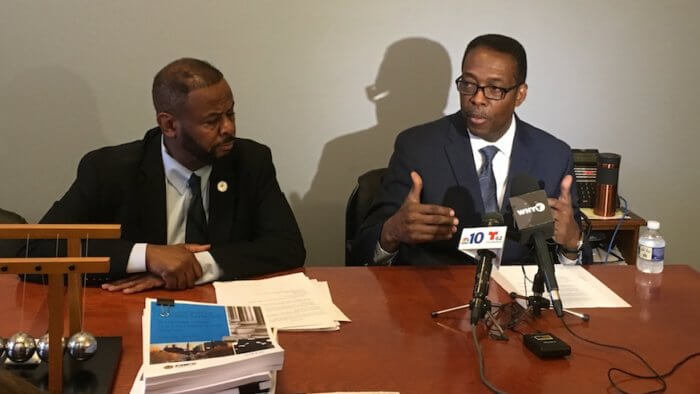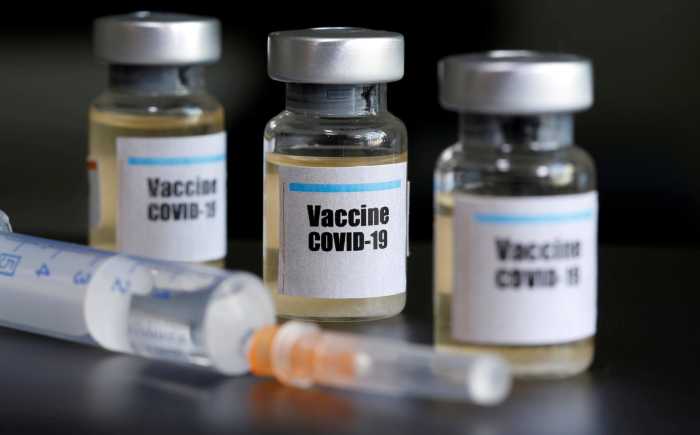Wednesday’s hearing on the police department’s budget began with a surprising exchange between City Council President Darrell Clarke and Police Commissioner Danielle Outlaw.
Clarke, after indicating his support for officers being mandated to live in the city, asked whether officials were planning to attempt to reinstate a residency requirement as part of contract talks with the police union.
“To be honest with you, in our preparations, we haven’t really discussed that at length,” Outlaw responded. “I will tell you that I’ve seen the pros and the cons of residency requirements.”
She went on to say that some officers prefer living outside city limits because it allows them to “unplug” and achieve a healthy work-life balance.
“Commissioner, I’m actually kind of surprised by your response to this question,” Clarke said. “It was kind of a softball.”
Over the course of the virtual hearing, which lasted close to four hours, Clarke and his colleagues questioned Outlaw and her deputies about the Philadelphia Police Department’s recruiting, efforts at reform and a variety of other topics.
It was part of a series of meetings on Mayor Jim Kenney’s $5.2 billion budget proposal, which was buoyed by $1.4 billion in federal relief dollars. Council and the administration must reach a budget deal by the end of next month.
The spending plan calls for the PPD’s budget to remain flat at $727 million; however, extra money for some policing initiatives is being funneled through the Managing Director’s Office.
Kenney dropped a planned $14 million increase in police funding last year after pushback from Council and the public in the wake of massive protests in response to the death of George Floyd.

Clarke, after his back-and-forth with Outlaw, said “the bottom line is that classes coming out of the (police) academy clearly do not reflect the demographics of the City of Philadelphia.”
Since 2012, officers with more than five years on the job have been allowed to move to the suburbs, though Council approved legislation last year requiring recruits to have lived in the city for at least a year.
Despite Outlaw’s comments, the Kenney administration has prioritized bringing back the residency mandate, spokesman Kevin Lessard told Metro Wednesday.
As a way to increase diversity, the PPD is running recruitment ads on radio stations targeting Black audiences and working with candidates who struggle with the reading and agility tests, Deputy Police Commissioner Robin Wimberly said.
Racial minorities comprise nearly 43% of the force, according to budget documents, compared to about 55% of the city as a whole.
Council members peppered PPD leaders with questions about body-worn cameras, tasers and how the department has changed since October’s fatal police shooting of Walter Wallace Jr.
“We need to be doing everything we can to avoid another Walter Wallace Jr. tragedy,” Councilwoman Jamie Gauthier said during the hearing.
Family members have said Wallace, 27, who was carrying a knife, was suffering from mental health issues when he was shot multiple times by officers on a West Philadelphia street.
None of the officers who responded to the situation had tasers, though the incident was recorded on their body-worn cameras, footage that was later released to the public.
The department’s goal is to equip all patrol officers with cameras and tasers, along with related training, by the end of the year, Deputy Commissioner Christine Coulter said.
An arrangement with legislators could allow the PPD to purchase the tasers this fiscal year, which begins July 1, and pay for them over the next five years. About 1,500 to 1,600 are needed, according to Coulter.
In addition, Francis Healy, Outlaw’s special advisor, said the department is rolling out a co-responder program pairing officers with behavioral health professionals.
Last summer, 911 operators began using a script to screen for calls involving possible mental health issues. For those jobs, two officers trained in crisis intervention are deployed, Healy said.
Eventually, dedicated teams, with an officer and civilian outreach worker, will be sent out, he added. Those crews are now patrolling some areas and responding as back-up.
“We’re still in our infancy there,” Healy told Council. “We have to be cautious as to what calls they’re directly sent to at this point in time.”
In the future, all-civilian mobile teams might be dispatched or calls will be directed to a crisis hotline, officials said.
Funding through the Managing Director’s Office will allow the PPD to hire 75 new 911 operators and fill a few dozen open positions, as well as provide for $5.3 million worth of forensics improvements.
Deputy Managing Director Michael Garvey, who oversees forensics, said the money will boost investigators’ ability to analyze DNA, ballistics and cellphone evidence.
There’s a hope that technology enhancements will improve clearance rates, or the percentage of cases ending in an arrest, which currently stand at 45% for homicides and 13% for non-fatal shootings this year.



























